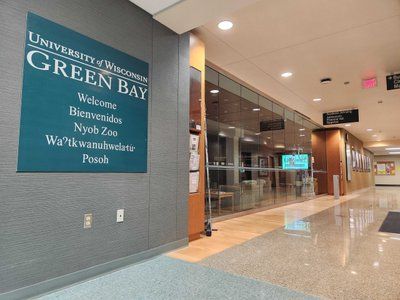By Tom Still
Madison Correspondent
MADISON – I might just as easily have datelined this column Chicago or Minneapolis, because last week found me in both of the economic powerhouses that bookend the “I-Q Corridor.” It was a reminder that better days lie ahead for Upper Midwest tech companies that have ideas, intellectual property, innovative spirit and investment capital – four of the “I’s” in the I-Q.
The fifth is the interstate highway system that binds Chicago, Milwaukee, the Rockford-Beloit-Janesville area, Madison, the Fox and Chippewa valleys and the Twin Cities of St. Paul and Minneapolis. Within a span of about 400 miles, which is about 100 miles less than what separates California’s high-tech centers of San Diego and San Francisco, lies a significant chunk of the nation’s research universities, tech workers and early-stage companies. There’s also plenty of capital, although not enough is invested in Midwest companies with marketable products in life sciences, information technology and advanced manufacturing. All of the ingredients for success are here.
Although some people in Wisconsin cling to the belief that economic development is accomplished by Madison bashing Milwaukee or Wausau one-upping Stevens Point, the real competition in the 21st century will take place globally. Identifiable regions such as the I-Q Corridor (where the “Q” stands for quality people, schools, lifestyle and environment) will flourish is they can produce globally competitive goods and services.
Wisconsin can win if it leverages its high-tech resources in a way that compliments what’s happening in Chicago and the Twin Cities. The point was hammered home for me in separate trips to both metro areas.
In the Twin Cities, a long history of innovative companies and risk-taking investors has produced one of the nation’s leading medical device clusters and leaders in agribusiness and information technology. The Minnesota Miracle may soon extend to biotechnology, due to the emergence of new state initiatives, cooperation between the University of Minnesota and the Mayo Clinic, and a burst of investment in research buildings.
Tech leaders in Minnesota has decided that the next wave of tech success will be interdisciplinary – with biotechnology, medical devices and IT melding into fields such as bioinformatics. That’s increasingly the approach in Wisconsin, as well, where the UW-Madison, the Medical College of Wisconsin and the Marshfield Clinic are all taking an interdisciplinary approach to research and company spinoffs.
The Twin Cities may also be on the verge of burying a very old hatchet – the rivalry between St. Paul and Minneapolis – to build a biotech incubator on land that straddles the line between both cities. There’s nothing today in Minnesota to match the University Research Park in Madison or the tech transfer ability of the Wisconsin Alumni Research Foundation, but it may only be a matter of time.
In Chicago, the Midwest-Japan Biotechnology Summit provided the latest evidence that the nation’s Heartland is becoming a heart-throb for life science investors and companies. Major Japanese pharmaceutical companies such as Fujisawa, Sankyo and Takeda were on hand to explain why they’re looking for U.S. partners. And there were no shortage of Midwest biotech companies there to listen.
The meeting, sponsored by the Japan External Trade Organization and about 40 Midwest organizations, demonstrated the global nature of tech-based business. Virtually all of the Japanese companies in attendance have long relationships with U.S. markets and suppliers – and they invest on both sides of the Pacific. Likewise, North American pharmaceutical companies at the Chicago summit said they’re working to secure their share of the Japanese market and to invest in its research.
Why are Japanese companies interested in the Midwest? They see it as an emerging cluster of research, workers and start-up companies – and a place where the business deals are less “picked over” than those they may find on the East and West coasts of the United States.
The “I-Q Corridor” is more than a branding slogan. It’s a place where Midwest technology, values and people meet the global economy.
Still is president of the Wisconsin Technology Council and the former associate editor of the Wisconsin State Journal in Madison.





